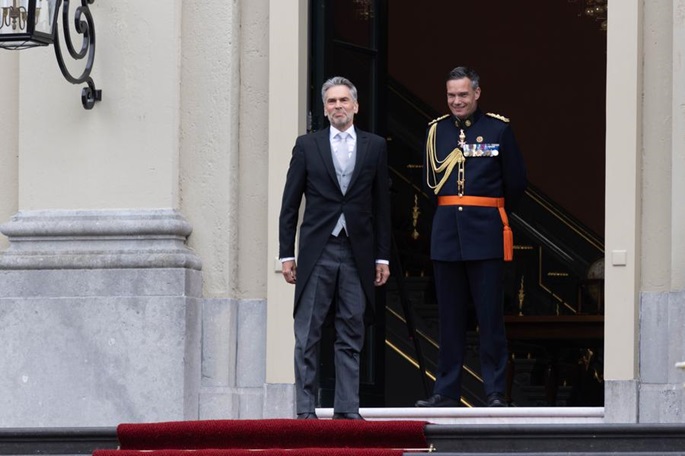Dutch gov't avoids crisis after dropping proposal for asylum emergency law
Published : 27 Oct 2024, 02:01
After weeks of intense debate, the Dutch government has reached a consensus on a revised asylum policy, agreeing to withdraw a controversial proposal for an emergency asylum law and thereby averting a potential government crisis, reported Xinhua.
The Dutch government, led by Prime Minister Dick Schoof, unveiled a revised asylum plan on Friday after the leaders of the four ruling coalition parties reached a deal to withdraw the controversial emergency law proposal. The agreement instead introduced a new set of stricter asylum measures.
The new agreement, which has been called the "Asylum Emergency Measures Act," includes key provisions aimed at reducing the pressure on the Dutch asylum system.
Among the measures are the planned return of Syrian refugees to designated safe areas in Syria and the introduction of stricter border controls, which will be implemented from the end of November.
Additionally, Dutch municipalities will no longer be required to provide housing for refugees, and asylum permits will now be limited to three years instead of the previous five.
While Schoof refrained from specifying exact figures, he assured that the new policies would result in a reduction in arrivals and an increase in repatriations. "I'm not going to put figures on every measure," he said. "The inflow will decrease and the outflow will increase."
Since its swearing-in in July, the Dutch government has emphasized the need for an urgent and comprehensive set of measures to manage the strain on the asylum system and curb the influx of asylum seekers.
The new measures replaced the controversial state of emergency law that had been championed by Geert Wilders' Party for Freedom (PVV). The emergency law would have allowed the government to enact swift measures under "exceptional circumstances" without prior approval from the House of Representatives or the Senate.
The adoption of an emergency law was included in the coalition agreement with Wilders considering it a crucial element. "If it doesn't go that way, I don't know if we'll continue happily for much longer," Wilders had warned after internal negotiations stalled.
The emergency law had faced resistance within the coalition, particularly from the New Social Contract (NSC) party, which argued that there were insufficient legal grounds to justify such a move.
Over recent months, the PVV and NSC had engaged in heated discussions, struggling to find common ground. Ultimately, the coalition, which also includes the People's Party for Freedom and Democracy (VVD) and the Farmer-Citizen Movement (BBB), agreed on the alternative measures.
In his remarks to Dutch media, Schoof acknowledged that the debate over the emergency asylum law had put the government's stability at risk.
While no one explicitly threatened a government crisis, "we did make it clear to each other that failure to resolve this issue could easily lead to the fall of the government," he said.
The new plan, which Schoof said should be finalized "as soon as possible," will require approval from both the House of Representatives and the Senate before it can be enacted into law.


